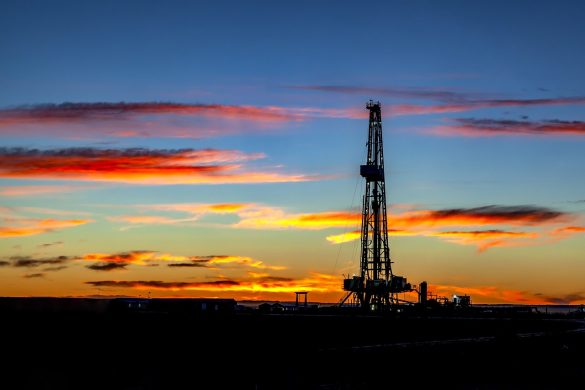
Photo Credit: Terry McGraw from Pixabay
A career in the oil and gas industry can be a fantastic option for those looking for an exciting and challenging role. Jobs in this sector tend to have great career prospects, a great level of pay, and only certain periods of the year in which you have to work.
If you’re thinking of a career in this varied and interesting sector, then take a look at the following post. We’re going to be covering everything you need to know about the oil and gas industry, and why you should choose a career in it. From career prospects and pay to how the industry will look going into the future, keep reading to learn more.
Career Prospects For The Oil And Gas Industry
The career prospects in the oil and gas industry are generally very good. There are a variety of roles within the sector that you can choose to specialise in. From engineering to research and development. There are a large number of job roles and many of them are in need of more skilled people to join their team. As skills are in high demand, the stability of the roles within the sector tends to be good, ensuring there is also the reassurance of high job security.
Jobs Available In The Oil And Gas Industry
So, what are some examples of the kind of roles available in the oil and gas industry? As you will see, there is a wide variety when it comes to what kind of roles you can choose to go into. Some examples of popular job roles include:
- Engineering- designing and creating tools, equipment, and technology for the sector
- Industrial technology- working on-site to extract and store oil
- Health and safety- ensuring sites are following the correct safety measures and regulations
- Logistics – ensuring oil and gas products are transported safely, securely, and efficiently
- HR and Accounting- ensuring employees are paid appropriately and any queries or grievances are handled effectively and professionally
As you can see, there is plenty of choices to consider when it comes to how you choose to be involved in the oil and gas industry. Whether you want a job that’s involved directly on-site such as offshore welder jobs, or you’re looking for something that can be based closer to home such as human resources roles.
Average Salaries For Different Job Roles
The salaries for the different job roles in the oil and gas industry can vary depending on which department you choose to work in. However, the sector generally has good standards of pay and offers competitive salaries for skilled workers. The amount you can earn rises considerably as you gain experience and further skills in the industry, making it a great option as a long-term career choice. The average salary for those working in entry-level engineering roles can vary but ranges from anywhere around £25,000 to £40,000 per year. The salary looks similar for industrial techs. Rising to up to around £80,000 for more experienced roles. For health and safety officers, you can expect around £25,000-£35,000 per year. Gas and oil logistics coordinators can expect around £20,000-£30,000 on entry, rising up to £40,000 with more experience.
How To Get A Job In The Oil And Gas Industry
The first step in getting a job in the oil and gas industry is to decide which career path you’d like to go down. You can then begin to work towards getting the necessary skills and experience to help you stand out to employers. It will depend on the particular role you’re interested in as to what education you need to have. However, generally, some good degrees to help you get into the oil and gas industry include engineering, geology, geophysics, petroleum technology, logistics, and finance. Seeking an internship can be a great way to help you gain more experience and the skills required for a role in that sector. Practical, hands-on experience will make you stand out to employers as much, if not more so, as academic knowledge and education history. Therefore, it’s a good idea to try and get a mixture of both to get the best chance of securing a role in the department you’re interested in.
Choosing Which Area To Work In
When it comes to choosing which area of the oil and gas industry you’d like to work in, you need to consider a number of aspects to help you make the right decision for you. For example, your educational and practical experience is one aspect that will help you decide which career path to go down. You should also consider your own unique skills and where you think they’d be best suited in a role. Additionally, you need to consider your personality and what lifestyle the different roles would have to offer. For example, are you willing to work offshore for extended periods of time, or would you rather be based closer to home? Before choosing a job role, be sure to do your research on the role you’re considering to help you have all the information and considerations you need to make the right decision.
Eco-Conscious Developments In The Industry
In recent years the oil and gas industry has had to become more aware and proactive about the effect it is having on the environment. There have been a number of changes and development made in the industry to help make more sustainable choices. The UK government, in line with its commitment to reduce greenhouse gas emissions and achieve net-zero carbon emissions by 2050, has set ambitious targets for the industry’s transition. Cleaner energy sources are being increasingly invested in as an alternative to traditional methods. These include offshore wind, hydrogen, and carbon capture and storage (CSS). This doesn’t, however, mean that there is a reduction in career prospects in the energy industry. It simply means that skills, knowledge, and practices are being adapted and improved to help drive more sustainable energy production. The industry will continue to need skilled and talented individuals to join its workforce for both the existing methods and the development of more sustainable methods of producing energy.
Research And Development
More research and development is being undertaken for this industry, with a focus on more eco-friendly methods of producing energy. There is also more research being done into finding new sources of oil, as the reserves in the North Sea are beginning to run low. This means supplies will have to be sought after in deeper and more challenging areas of the sea. This poses more risks and difficulties in accessing new reserves of oil whilst also following safety regulations. At the same time, the sector must ensure it is following environmental standards and regulations too. Whilst it poses its challenges to the sector, these ever-pressing factors are also helping to create further roles within the oil and gas industry. There is now more need than ever for environmental scientists to help monitor the effects of the sector on the environment. They are also involved in helping to create more eco-conscious solutions and practices for generating energy for the UK. These scientists will help to come up with solutions on how to protect and preserve natural resources, reduce its carbon footprint, and reduce greenhouse gas production.






